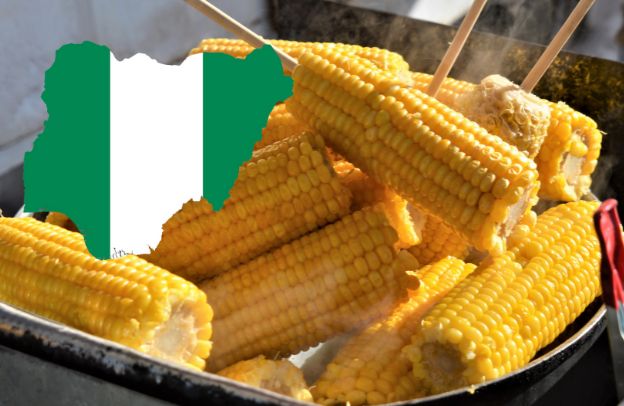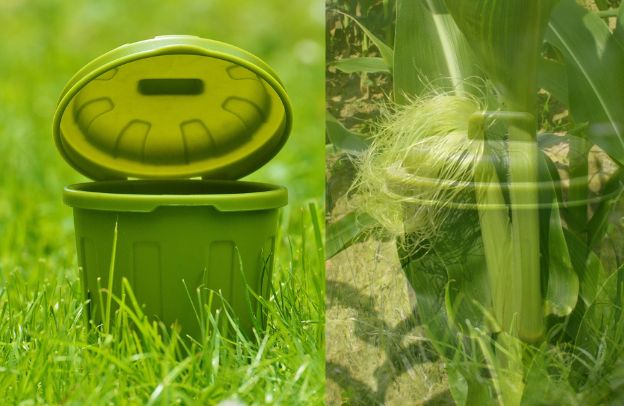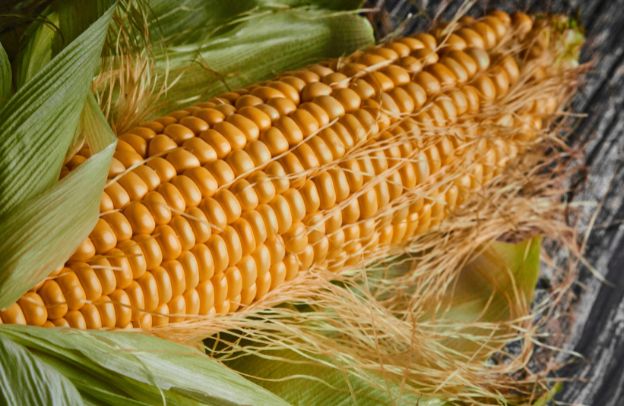The Secret to Increasing Your Maize Yield: Unlocking Nigeria’s Agricultural Treasure for African Diaspora Entrepreneurs

Imagine standing at the crossroads of immense agricultural potential and untapped economic opportunities. What if your next business venture didn’t just generate wealth but also tackled food insecurity, created jobs, and reshaped lives across Africa? For the African diaspora, Nigeria’s agribusiness sector presents a golden opportunity, and maize farming is at its heart.
Learn How to Leverage Your Story through our Story To Asset Transformation (S.A.T) Framework.
With maize being Africa’s most consumed staple crop and Nigeria leading in production, the question isn’t whether to invest but “how” to maximize yields. What’s the secret to increasing your maize output while ensuring sustainable farming practices?
This article unravels the strategies, supported by data, that will help you seize Nigeria’s agricultural promise and make a transformative impact.
1. Why Maize Matters: The Foundation of Food Security and Economic Growth
Maize isn’t just a crop; it’s a lifeline for millions. It accounts for over 50% of caloric intake in many African households and serves as a vital ingredient in livestock feed, ethanol production, and more.
According to the Food and Agriculture Organization (FAO), maize contributes significantly to the economies of sub-Saharan Africa, supporting over 300 million livelihoods.
Nigeria, the largest producer of maize in Africa, harvested approximately 12.8 million metric tons in 2022 (Statista). Yet, the country’s potential remains underutilized.
With a growing population expected to reach 400 million by 2050, maize offers a unique chance to meet the surging demand for food while driving economic growth.
2. Planting for Success: Choosing the Right Seed Varieties
The foundation of a high-yield maize farm begins with selecting the right seeds. Hybrid maize varieties, tailored for Nigeria’s climatic conditions, are revolutionizing yields. These seeds are resistant to pests, diseases, and drought, providing farmers with the resilience needed to navigate climate uncertainties.
Organizations like the International Institute of Tropical Agriculture (IITA) have developed drought-tolerant maize specifically for African regions. Studies show that these hybrids can boost yields by up to 50% compared to traditional varieties.
As an African diaspora entrepreneur, sourcing and distributing these high-performance seeds can position you as a leader in sustainable agribusiness.
3. The Power of Crop Rotation: Nurturing the Soil
Soil health is the backbone of any successful maize farm. Rotating crops, particularly alternating maize with legumes like cowpeas, replenishes essential nitrogen in the soil while breaking pest and disease cycles.
The FAO emphasizes crop rotation as a cornerstone of sustainable agriculture, helping farmers maintain productivity while reducing reliance on chemical fertilizers. By promoting this practice, you can lower production costs and enhance environmental sustainability, key selling points for socially conscious consumers and investors.
4. Fertilizers: Balancing Productivity and Sustainability
Fertilizers are critical to unlocking your maize yield potential. Nigeria’s Federal Fertilizer Initiative has made strides in improving access to high-quality, affordable fertilizers. Yet, many smallholder farmers still lack the resources to use them effectively.
As an entrepreneur, you can introduce innovative fertilizer solutions, including organic blends, that enhance crop growth while minimizing environmental harm. According to the World Bank, integrating organic fertilizers with minimal synthetic inputs can increase yields by 30% and reduce soil degradation.
5. High-Density Planting: Making Every Hectare Count
With land resources becoming increasingly scarce, optimizing plant density is essential. High-density planting planting more maize per hectare, maximizes output while reducing weed competition. However, this technique requires careful spacing and adequate water and nutrient management to prevent overcrowding.
Research published on ResearchGate highlights how high-density planting combined with precision farming tools can increase maize yields by up to 20%. This approach ensures you make the most of your investment, especially in regions with limited arable land.
6. Managing Water Efficiently: Irrigation and Drainage Systems
Erratic rainfall patterns are one of the biggest challenges for maize farmers in Africa. Effective irrigation systems, such as drip irrigation, and well-planned drainage networks can help you maintain consistent crop growth.
A World Bank study emphasizes that proper water management can increase crop productivity by 40%. For diaspora entrepreneurs, investing in modern irrigation infrastructure can set you apart while ensuring year-round production.
7. Leveraging Technology: Precision Farming for Maize
Technology is transforming agriculture, and maize farming is no exception. Precision farming tools, such as GPS-guided tractors, drones for crop monitoring, and soil sensors, enable farmers to optimize every stage of production.
For African diaspora investors, adopting smart farming technologies not only enhances efficiency but also appeals to global markets increasingly focused on traceability and sustainability. According to the African Union’s digital agriculture strategy, such innovations are projected to boost Africa’s agricultural output by $10 billion annually by 2030.
According to a publication on ResearchGate, precision agriculture offers innovative methods and concepts to enhance farming efficiency, particularly in crop and soil management.
These methods include the use of advanced technologies such as global positioning systems (GPS), remote sensing applications, and crop, soil, and position sensors. These technologies aid in detecting crop stress, monitoring soil variability, and managing weeds and diseases.
Precision agriculture also incorporates machine controls and computer-based systems, facilitating field-level operations such as soil preparation, fertilization, irrigation, and weed management.
In Africa, the adoption of precision agriculture has proven transformative, improving food security through increased water and nutrient use efficiency and timely management of farming activities.
For both commercial and smallholder farmers, these advancements have significantly reduced the costs of inputs while also curbing environmental pollution.
By optimizing fertilizer and agrochemical applications, ground and surface water pollution has slowed, demonstrating the dual benefits of environmental sustainability and cost-effectiveness.
Two notable examples of precision agriculture in Africa highlight its impact. In South Africa’s Western Cape region, FruitLook is a cutting-edge information technology platform that assists deciduous fruit and grape farmers in practicing water-efficient and climate-smart agriculture.
Additionally, small-scale farmers in Mozambique, Tanzania, and Zimbabwe have benefited from Chameleon and Wetting Front Detector Sensors. These tools have revolutionized irrigation practices, reducing irrigation frequency by a staggering 50-fold while doubling productivity.
The evidence underscores that precision agriculture has played a pivotal role in addressing food security challenges in Africa. By efficiently managing inputs such as fertilizers and water, it has enhanced agricultural productivity while mitigating environmental degradation.
This innovative approach exemplifies how technology can bridge the gap between sustainable farming practices and increased food production.
8. Weed Control: A Simple Yet Crucial Step
Weeds are more than just an inconvenience; they’re yield thieves. If left unchecked, they can reduce maize production by up to 50%, according to research by the International Maize and Wheat Improvement Center (CIMMYT).
Combining pre-emergent herbicides with manual weeding ensures that your crops receive the nutrients, water, and sunlight they need to thrive. As a diaspora entrepreneur, introducing eco-friendly weed management solutions can set a benchmark for sustainable farming.
9. The Business Beyond Farming: Value-Added Opportunities
Maize farming is just the beginning. Processing maize into flour, starch, animal feed, or ethanol significantly increases its value. Nigeria’s growing urban population has fueled demand for these products, making value addition a lucrative venture.
For example, the Nigerian government’s Anchor Borrowers’ Programme (ABP) has successfully linked maize farmers to agro-processors, fostering a more integrated value chain. As an entrepreneur, identifying and investing in these value-added opportunities can maximize your returns.
10. The Bigger Picture: Jobs, Food Security, and Economic Impact
Beyond profits, maize farming addresses some of Africa’s most pressing challenges. Agriculture accounts for 36% of Nigeria’s employment, and expanding maize production can create even more jobs.
Moreover, maize contributes directly to food security by increasing the availability of affordable, nutrient-dense food. For African diaspora entrepreneurs, investing in maize farming isn’t just a business decision; it’s a chance to be part of a movement reshaping Africa’s future.
Conclusion: Your Role in Nigeria’s Agribusiness Revolution
The secret to increasing your maize yield lies in combining scientific knowledge with entrepreneurial vision. From selecting the right seeds to adopting modern farming techniques and exploring value-added opportunities, every step you take brings you closer to transforming Nigeria’s agricultural landscape.
For African diaspora entrepreneurs, the time to act is now. With Nigeria’s agribusiness potential ripe for the taking, you have the power to make a meaningful impact not just for yourself but for millions of others.
By investing in maize farming, you’re not just planting seeds in the soil; you’re planting the foundation for a brighter, more abundant future.
So, are you ready to unlock the promise of Nigerian agribusiness? The fields are waiting.
Learn How to Leverage Your Story through our Story To Asset Transformation (S.A.T) Framework.





